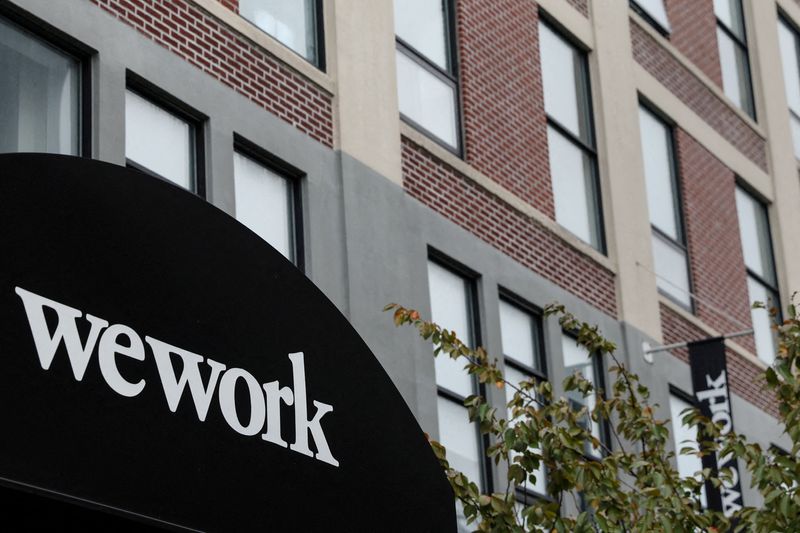(Reuters) - WeWork CEO David Tolley stepped down after the flexible workspace provider emerged from bankruptcy on Tuesday, bookending a months-long restructuring process that featured a strategy revamp and exits from several locations.
The company named commercial real estate industry veteran John Santora as its new top boss. He most recently served as Tri-State chairman at global real estate services firm Cushman & Wakefield (NYSE:CWK).
Once the most valuable U.S. startup, WeWork expanded at a breakneck pace but racked up steep losses due to expensive leases and a sharp pandemic-driven slump in demand, before filing for bankruptcy protection in November 2023.
WeWork received approval from a U.S. bankruptcy judge for a restructuring plan late last month, allowing it to eliminate $4 billion in debt and hand over its equity to a group of lenders and real estate technology company Yardi Systems.
Tolley joined WeWork in February 2023 as a board member. He became CEO in October, leading the company through a tumultuous period that saw major operational and financial revamps.
During his tenure, WeWork downsized its real estate portfolio sharply, renegotiated more than 190 leases, exited over 170 unprofitable locations, and cut annual rent and tenancy expenses by over $800 million.
It also secured $400 million in new equity capital to support its future growth, while cutting down its expenses by more than 30%.
The startup was one of the biggest bets of SoftBank (TYO:9984) Group, which owned around 71% stake last November, even though over the years it wrote down most of its investment. It is set to retain a minority stake on account of the loans it provided.

WeWork rebuffed a $650 million offer in April from co-founder and former owner Adam Neumann, saying his proposal did not offer a high enough price to win over lenders.
The beleaguered firm estimated its post-bankruptcy equity to be worth about $750 million, a far cry from the $47 billion valuation it commanded in 2019.